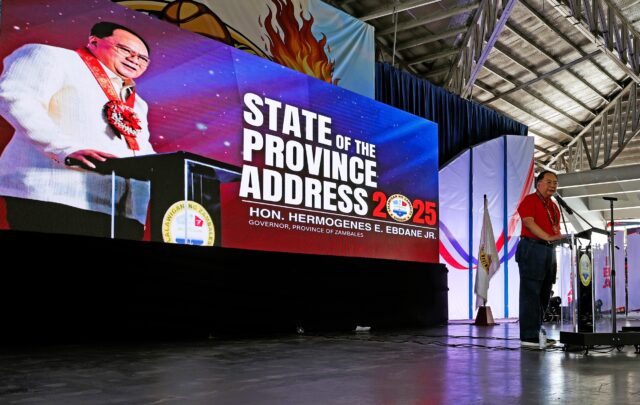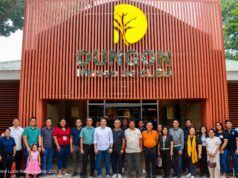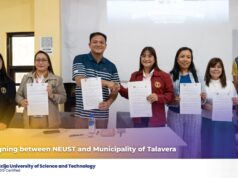
BOTOLAN, Zambales — Leaping over limitations in the past and seizing opportunities in the present, Zambales is now poised to become a “future-proof” province, said Gov. Hermogenes Ebdane Jr. in his State of the Province Address (SOPA) at the People’s Plaza here on March 27.
The governor said his administration has revitalized income generation and boosted economic recovery in the past three years, thus enabling stronger public services, building more social infrastructure, and promoting sustainability for Zambaleños.
He added that despite past challenges, Zambales recorded more than P1.2 billion in local income in 2024 alone, mobilized P2.6 billion for infrastructure development, and distributed more than P341.8 million in social services, mostly for poor families and needy sectors.
Before this, Zambales faced limited revenue stream, scant opportunities for economic growth, political indifference, and very little grassroots participation, Ebdane pointed out.
“We inherited a Zambales filled with promise, but burdened by setbacks and limitations,” Ebdane recalled. “The turning point came when we stopped waiting for change and started becoming the change.”
Ebdane said the provincial government took bold measures to revive revenue generation. These included a strategic river rehabilitation and restoration program that also earned income from collected Pinatubo debris that choked river channels, improving the quarrying network, and ensuring proper revenue collection.
Thus, with local revenue climbing from 2020 to 2024, Zambales earned its classification as a first-class province in 2023, Ebdane said.
At the same time, the provincial government built engines of economic growth: the Zambales Mango Industry Council that launched the P50-million Zambales Mango Green Valley Project to boost local mango production, and the Zambales Maritime Development Council that helped organize the Zambales Provincial Fisherfolks Association to promote modern fishing practices and ensure sustainable growth.
“We did not wait for investments; instead, we created it,” Ebdane pointed out. He said the agriculture and fishery groups created will serve as economic anchors and engines to propel development in communities.
Under social services, Ebdane said the provincial government upgraded facilities in the four government hospitals in the province; broadened educational assistance to encompass elementary, high school, and graduate students; and provided livelihood support like agricultural grants, farming implements, fishing equipment, and skills training, especially to those adversely affected by the Covid-19 pandemic.
The provincial government prioritized projects like roads and bridges, schools, hospitals, government facilities, and water systems to boost agriculture, commerce, and market distribution in Zambales.
Ebdane pointed out that in 2024, infrastructure development in Zambales reached a record-breaking 79.98% completion rate with some P2.6 billion coming from various sources. Key projects included a new Zambales Capitol building, new Capitol annex, Zambales Sports Stadium, and the President Ramon Magsaysay Memorial Hospital Annex building, alongside community-level infrastructures like multi-purpose halls and senior citizens centers.
Ebdane said future-proofing Zambales also aims to make the province a benchmark for development across the region. For this, the government would push for a smart digital ecosystem and launch the “Zambales eGov Services” for accessing public services, permits, social assistance, and information; strengthen local value chain to retain income within the province and empower producers, processors; and expand support to entrepreneurs and cooperatives by boosting the “Best of Zambales Products” brand with an initial outlay of P1 million.
The provincial government will also accelerate human capital and co-governance by launching the “Zambales Youth Innovation Program” to support youth-led projects in technology, agriculture, education, and social change; upscale participatory budgeting, barangay dialogues, and sectoral planning groups to bolster participatory governance; and double its commitment to environmental resilience.
Ebdane said it was necessary not only to predict the future, but also to prepare for it. “From adversity to breakthrough, from scarcity to self-reliance, Zambales is now ready to raise the bar,” he said.




